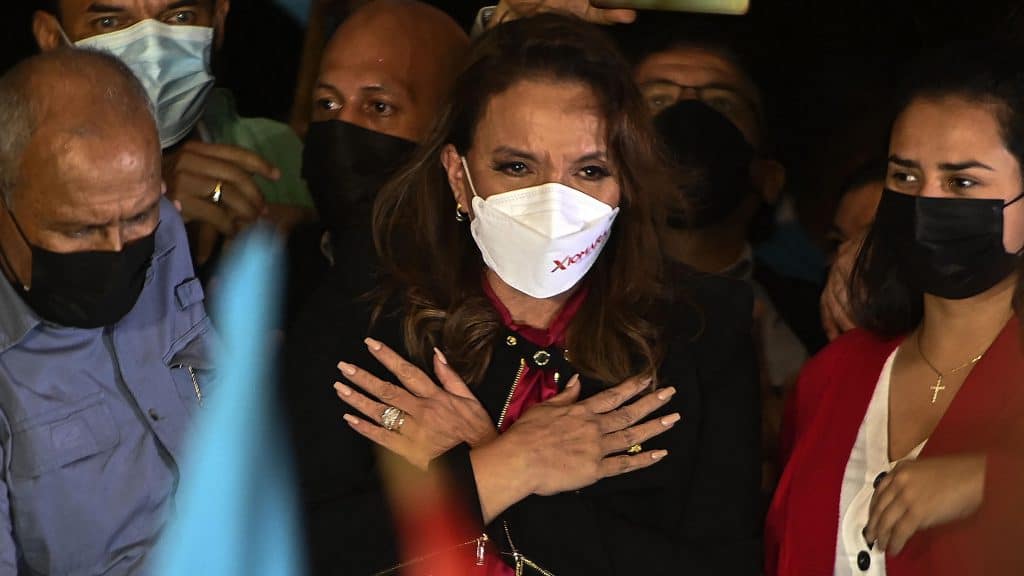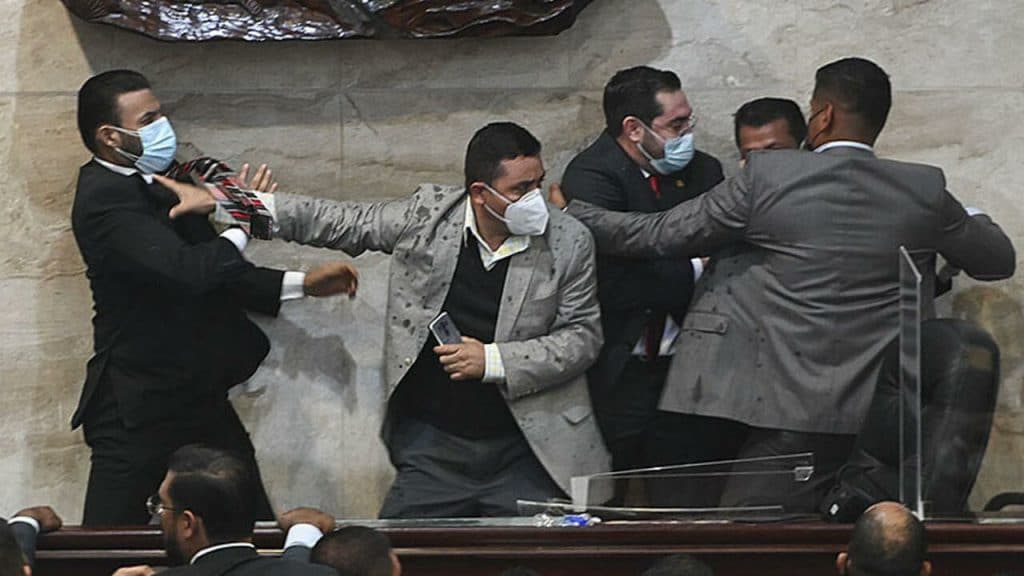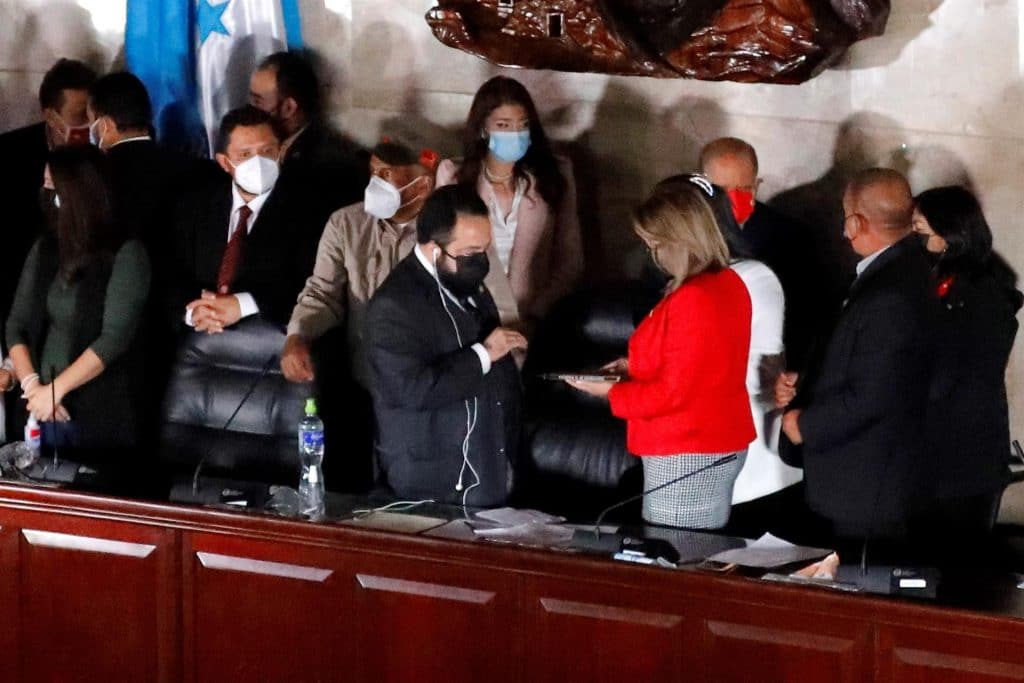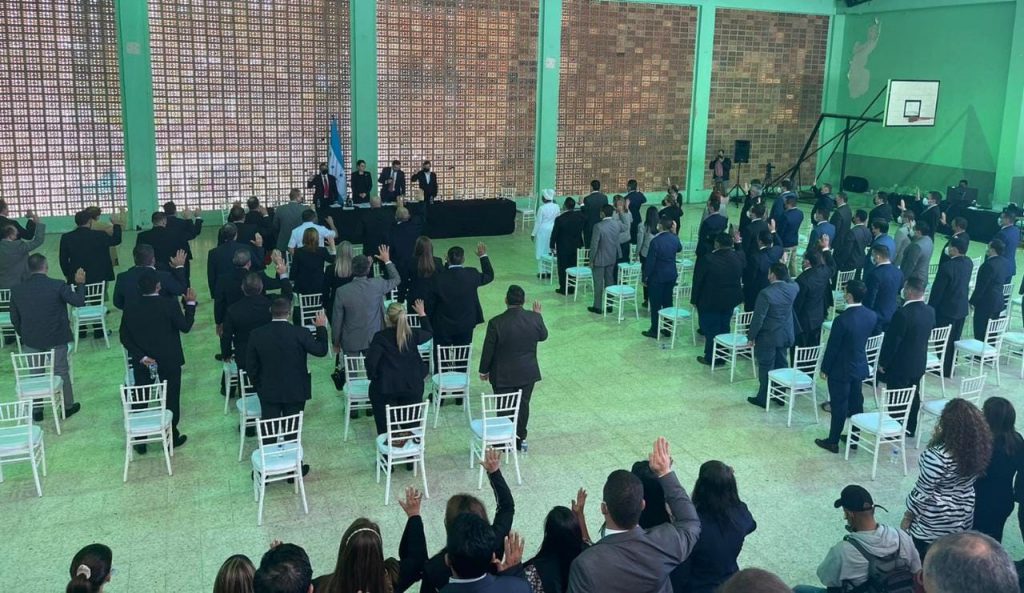
Xiomara Castro is making history in Honduras, not only for being the first female president to assume the mandate in the Central American nation, but for representing the return of the left after the coup d’état against Castro’s former president and husband, Manuel Zelaya, executed in 2009.
However, the entry into the political scene that accompanies Castro is surrounded by tensions, and the context presents the swearing-in in parallel of two Boards of Directors of the National Congress and the expulsion of 18 deputies of the Freedom and Refoundation Party (LIBRE), who violated previous agreements and are now accused of «Traitors to the Homeland» by the elected president.

The internal crisis within the ranks of Xiomara Castro, was evidenced in mid-January of this year, when almost two dozen of its deputies broke criteria in the provisional election of those who would represent the leadership of the Legislative Assembly, a fact that ended with a series of aggressions among the parliamentarians within the National Congress.
Consequently, these events generated the two parallel Boards of Directors of the National Congress, one in which the deputy, Luis Redondo, backed by Castro, was elected president; the other is chaired, Jorge Cálix, who was appointed by the dissident parliamentarians in alliance with opposition forces.
The president-elect, Xiomara Castro, has reaffirmed that she will be sworn in as head of Constitutional State before a judge and not before a National Congress presided over by «Traitors to the Homeland». However, he recently invited Luis Redondo to take his oath, which could unleash a legal plot.
What is the legitimate directive of the National Congress?

The truth is that the new Executive of Honduras is in check with the situation of the Legislative Parliament. The analyst and professor of Sociology at the National University, Eugenio Sosa, declared that «a crisis of high dimensions is coming, it is in danger that Xiomara Castro does not take office», he also warned of the risk of a “new coup d’état».
Sosa pointed out that the election of Cálix as president of the Board of Directors of the Legislative Branch has the «legality», because he presented more titular deputies than that of Redondo supported by Castro and where several alternates voted.
In addition to this, in the election of Cálix, the Minister of the Interior, Leonel Ayala, was present, which, according to analysts, gives him greater legitimacy over Deputy Redondo.

On the other hand, there are those who believe that the new president, Xiomara Castro, will emerge consolidated from this process. The analyst and former right-wing deputy of the National Party (PN), Raúl Pineda, gave statements in which he affirmed that, «the matter is a nature of politics, transcended the legal. The lady will control the economic resources of Congress, the security forces, while (…) the dissident group will die by inertia, it is only a matter of days.»
Likewise, the former deputy during the Zelaya government, Víctor Meza, detailed in the media that, with the current political situation, Xiomara Castro, would be strengthened, because «she will have a loyal Congress, which will accompany her, requires a strong Congress to recover the institutionality, the Rule of Law.»
A new twist could be forged in the current Honduran political drama, and that is that, Jorge Cálix, recently, took a step forward to supposedly end the political conflict, stating that «let’s dialogue; if necessary, let us repeat the vote. I submit whenever they want to the scrutiny of members. If there are two forms, let’s put them to a vote,» the parliamentarian proposed.
With the international magnifying glass on Honduras, on January 27, Xiomara Castro would have to legally assume her position as president, in an uncertain national and international political juncture for the Central American nation.





